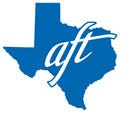(October 2, 2018)
Infographic gives a clear picture of negative impacts of charter schools on taxpayer dollars
In the coming months, Texas AFT will be focusing on educating Texans on the negative impacts charter schools have our our public education system and the efficient use of taxpayer dollars.
But North East ISD (a San Antonio-area district) has beat us to the punch with an excellent infographic outlining how charter schools get more funding per pupil than regular public schools and educate a less diverse and expensive population of students. While the Texas media have covered charters schools extensively, not much of that coverage has focused on the financial impacts to existing schools. (Although we do see plenty of good coverage on mismanaged charter schools, like this piece from the Dallas Morning News on “Dallas-area charter faces TEA investigation, staff shakeup, after allegations of financial improprieties.”)
So kudos to North East ISD on publicizing these impacts with a clear and concise picture of what happens when charter chains move into urban areas.
Financial deal for nonprofit operator reveals problems with transparency in charter schools
There’s an interesting article in the Texas Tribune regarding the CEO of Southwest Key Programs and his personal investment in a property leased by the nonprofit. Southwest Key operates the vast majority of facilities for federal detention of migrant children.
CEO Juan Sanchez is part owner of a property that the nonprofit leases and thus benefits personally from the arrangement, although a spokesperson for Southwest Key stresses that the deal creates a lower cost for housing the children.
There’s a couple things to focus on here. First, this is the same type of inner dealings we see with managers of charter schools (Southwest Key also operates charter schools). Second, Sanchez initially denied any personal financial involvement, something that had to be corrected by his spokesperson — highlighting that with the de facto lack of transparency in charters schools, management can easily hide unethical financial arrangements. Here’s the full article at the Texas Tribune.
Texas faulted for underspending on special education services
Another Texas Tribune article outlines an unusual legal proceeding in which the state of Texas is defending itself against accusations from the federal government that it illegally spent $33.3 million less on special education services than it had previously. States are required to maintain the same level of funding or more for these services to be eligible for federal grants. If the states don’t, they can lose the same level of underfunding in grant money, e.g. Texas stands to lose $33.3 million in federal funds.
What makes the state’s case absurd is that Texas is arguing that the cost of services was lower, and thus the expenditures would be lower, leading to less money spent. Then again, this was during a period where the Texas Education Agency was accused of setting a cap on the amount of students that could receive special ed services — a controversy that led to the federal government intervening and mandating reforms that could cost Texas billions more to offer required services for special education. So Texas stands to lose twice — once in lost federal grant money, and again for needing to pump a whole lot more money into special ed services to meet federal requirements.
Reversing the ‘churn’ in Houston ISD
Our Houston Federation of Teachers President Zeph Capo weighs in on reversing the trend of high teacher turnover at struggling Houston ISD schools in a Saturday Houston Chronicle article. “We knew there was tremendous churn, and that it was not good for families, not good for kids and not good for bringing those schools forward,” Capo said. “What we saw too often before in most of our struggling schools was they were too significantly overpopulated with brand-new teachers, who were just trying to figure out how to make their place.”
Interaction with Peace Officers curriculum now required
We now have about a half hour more of curriculum required for high schoolers, although it’s hard to argue that interaction with police officers isn’t an important topic to address. SB 30 passed last session requires the curriculum in schools and new-drivers instruction for 9th graders entering high school this year. (Peace officers also are required to receive the curriculum.)
State Sen. Royce West tells the Dallas Morning News, “Sometimes people get pulled over and fumble around in their car trying to get their driver’s license, and if you’re a police officer, you may take that the wrong way. We want to make sure drivers understand what they should and shouldn’t do when they’re stopped and understand their rights.”
The Department of Public safety and TEA have created a video and short written guide for instruction, which were released by TEA this week.
Read more Texas AFT news, including our daily Legislative Hotline, at www.texasaft.org.
